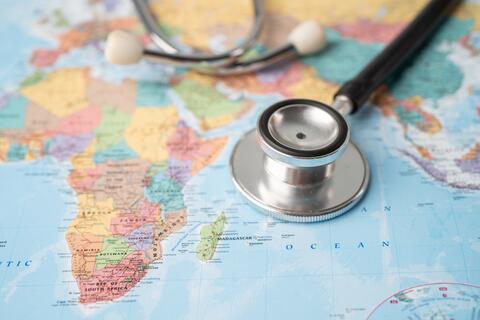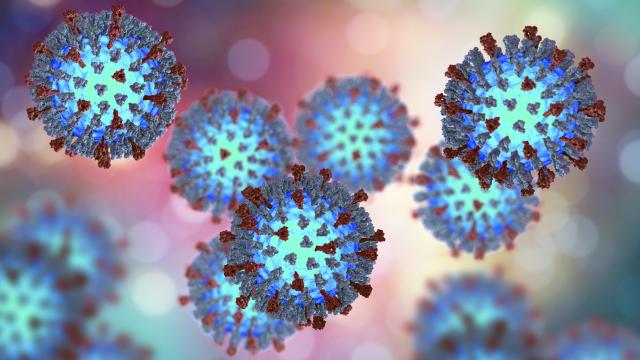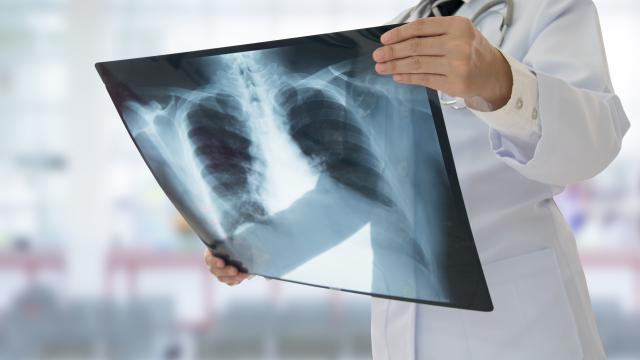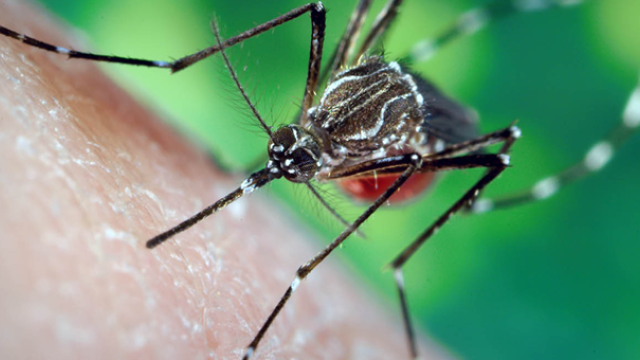Traveler Health: What You Need to Know
Traveling domestically and internationally is a wonderful way to learn about the world. However, it is very important to prepare for your trip so that you can stay safe and healthy when you are away from home.
Visit the CDC's (Centers for Disease Control and Prevention) Travelers' Health page for up-to-date travel information about your destination.
If you travel internationally, consider how you will access health care abroad in the case of an emergency medical situation.
Prepare for your trip
The Safe Travel Checklist, P-03380 (PDF) contains important things to do before, during, and after your trip.
Consult with your doctor six to eight weeks before you plan to leave for an international trip. If you have difficulty finding travel health services within your healthcare network, consider searching for a provider at the International Society of Travel Medicine.
- Know if vaccinations or test results, such as COVID-19, are needed before entering your travel destination. Give yourself plenty of time as some vaccines may be required to be received more than one month before you arrive. If you need help finding a location that provides certain vaccines or medicines, visit the CDC’s Find a Clinic page.
- Visit the U.S. Department of State travel webpage to learn about your destination, required documents for entry for U.S. citizens, and tips for staying healthy and safe.
- Review the Transportation and Security Administration’s (TSA) list of items that you can and cannot bring on a plane.
- Make an appointment with a doctor at least six to eight weeks before you travel. While at your appointment, discuss your personal medical history, medications you currently take, and any activities you have planned during your trip.
- Don’t forget to pack and, when needed, take medicine prescribed by your doctor (for example, antimalarial or travelers’ diarrhea medicine). If you regularly take medications, be sure to bring extra in case you experience travel delays. Visit the CDC’s travel page to make sure your medication is permitted in your travel destination. You may need a “doctors note” to travel with certain medications. Be certain to store medications in the original containers.
- Does your health insurance cover medical care abroad? If not, you may be responsible for out-of-pocket costs. Consider buying travel insurance that covers health care and emergency evacuation.
- Plan and prepare for emergencies.
- Check with your cell phone provider to make sure your phone will work in your destination.
- Have cash on hand when you arrive at your destination for incidentals and emergencies.
- Know the currency exchange rate and limit debit card use to secure locations, such as ATMs and banks. Be sure to notify your credit card company of your travel plans.
- Make sure someone at home knows how to reach you or the local embassy in the event of an emergency.
- Consider bringing electronic and paper copies of important documents (such as passport, travel documents, health insurance card, and proof of required vaccinations).
- Pack items that may be difficult to find at your destinations, such as:
- Insect repellent.
- Sunscreen.
- Condoms.
- Prescriptions (including insulin, inhalers, and EpiPens).
- Over-the-counter medicines (such as, pain reliever or motion sickness medicine).
- Water disinfection tablets.
- Extra glasses and contacts
- Hand sanitizer
- Consider signing up for the Smart Traveler Enrollment Program (STEP), a free service that provides important up-to-date information from the Embassy about safety conditions. They will also provide assistance in emergency situations (natural disaster or civil unrest).
- Take steps to protect yourself and others against germs.
- Wash your hands or use hand sanitizer frequently.
- Avoid being around people who are sick.
- Consider wearing a mask or respirator while you travel, especially if you are at higher risk for severe COVID-19 illness.
- Stay at your destination until you recover if you get sick, unless you need medical care.
- Stay safe on the go.
- Wear your seat belt always when riding in a vehicle.
- Wear a helmet when riding a bike or motorcycle.
- Avoid riding on overcrowded buses and cars.
- Avoid using unmarked taxis.
- Prevent bug bites. Bites from mosquitos, ticks, fleas, and flies can make you sick. Continue taking antimalarial medication if prescribed and take other steps to prevent illnesses caused by bugs.
- Use insect repellent.
- Wear long-sleeved shirts and long pants when outdoors.
- Complete tick checks every night.
- Eat safer food and drinks. Contaminated food and drinks can cause diarrhea and other illnesses.
- Eat foods that are fully cooked and served hot.
- Avoid eating fresh vegetables and fruit that has already been peeled and cut.
- Drink bottled water and sealed drinks.
- Avoid ice.
- Avoid animals. Animals can spread diseases and can even be dangerous. Seek medical care if you are bitten or scratched by any animal.
- Know the items, including food products, that may be prohibited or restricted by Customs when you return to the United States.
- Talk to a doctor if you get sick, injured, or have a fever during or after your trip. Share with your doctor the following information:
- Where you traveled and where you stayed
- What you ate and drank
- What activities you did (swimming, hiking, or things involving animals)
- If you have injuries, scratches, or bites
- If you had close contact with other people who may be sick (including sexual contact)
- If you got any tattoos or piercings
- Continue taking all medications as prescribed by a doctor.
- If you plan to travel internationally with your pet, tell your veterinarian about your plans as soon as possible.
- Together, you can make sure your pet is healthy enough to travel and meets the requirements for your destination.
- Some airlines do not allow pets to travel between May and September, due to extreme heat.
- Children may face the same health risks as their parents during travel, but the health consequences can be more serious
- Visit CDC’s traveling with children webpage to help keep everyone in your travel party safe and healthy.
- Traveling while breastfeeding can provide unique opportunities and challenges. Learn how to prepare for travel while breastfeeding.
- Most U.S. airlines will permit children over 5 years old to travel without an adult. Airlines have many procedures to help protect children who are traveling by themselves. Reach out to your specific airline or visit the U.S. Department of Transportation to learn more.
Immunizations for travel
All travelers, regardless of their destination, should be up-to-date on routine vaccines. This is because many diseases that are less common in the United States are still spreading throughout different parts of the world. Childhood vaccines in the U.S. have helped limit the severity and spread of these diseases here. Ensuring you are vaccinated before you travel will help keep you from getting sick and potentially spreading disease when you return home. Important routine vaccines include:
- Measles-mumps-rubella (MMR) vaccine.
- Diphtheria-tetanus-pertussis vaccine.
- Varicella (chickenpox) vaccine.
- Polio vaccine.
- This year's flu shot.
You may be recommended to get additional vaccines or take other steps to avoid illnesses that are common in your destination. Additionally, some countries may have specific requirements and recommendations that you need to comply with when visiting. Visit CDC's Destinations webpage, or check directly with your destination, to learn about entry and exit requirements and to view the latest travel health notices.
Resources for health care providers
- Travel Health Network Update: January/February 2025
- Disease Spotlight: COVID-19
- Travel Health Network Update: November/December 2024
- Disease Spotlight: Pertussis
- Travel Health Network Update: September/October 2024
- Disease Spotlight: Animal and Insect Envenomation
- Travel Health Network Update: July/August 2024
- Disease Spotlight: Rabies
- Travel Health Network Update: May/June 2024
- Disease Spotlight: Legionnaires’ Disease
- Travel Health Network Update: March/April 2024
- Disease Spotlight: Measles
- Travel Health Network Update: January/February 2024
- Disease Spotlight: Norovirus
- Travel Health Network Update: November/December 2023
- Disease Spotlight: Cholera
- Travel Health Network Update: October 2023
- Disease Spotlight: African Tick Bite Fever
- Travel Health Network Update: September 2023
- Disease Spotlight: Valley Fever
- Travel Health Network Update: August 2023
- Disease Spotlight: Influenza
- Travel Health Network Update: July 2023
- Disease Spotlight: Typhoid Fever and Paratyphoid Fever
- Travel Health Network Update: June 2023
- Disease Spotlight: Dengue
- Travel Health Network Update: April 2023
- Disease Spotlight: Marburg
- Travel Health Network Update: March 2023
- Disease Spotlight: Diphtheria
- Travel Health Network Update: February 2023
- Disease Spotlight: Tuberculosis (TB)
- Travel Health Network Update: January 2023
- Disease Spotlight: Japanese Encephalitis
- Travel Health Network Update: December 2022
- Disease Spotlight: Dengue Virus
- Travel Health Network Update: October 2022
- Disease Spotlight: Valley Fever (Coccidioidomycosis)
Common diseases circulating across the globe
Polio
Polio is a life-threatening disease caused by poliovirus. The virus is very contagious and spreads easily from person-to-person
Measles
Measles is a disease caused by the measles virus. Measles can be dangerous, especially for infants and young children.
Cholera
Cholera is a disease that affects the intestines. A person can become sick with cholera after consuming contaminated food or water.
Tuberculosis
Tuberculosis (TB) is a disease caused by the bacterium called Mycobacterium tuberculosis. The disease can attack any part of the body, but usually attacks the lungs.
Travel-associated illnesses spread by mosquitos
Travel-associated illnesses spread by mosquitoes are illnesses that people can get while traveling outside of Wisconsin







